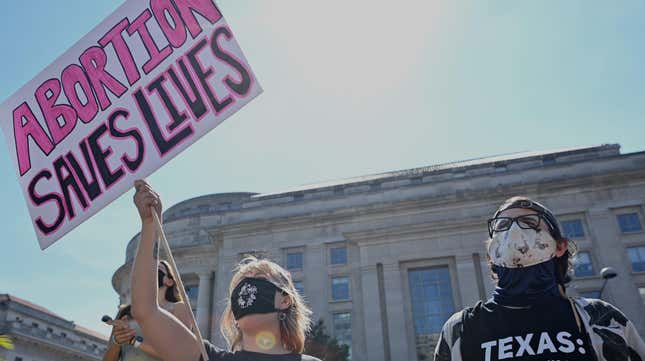Women Who Almost Died From Texas’ Abortion Ban Sue State in Landmark Lawsuit
They're suing for clarity on the ban's exception for threats to the pregnant person's life. One of the women lost a fallopian tube; another is still pregnant.
AbortionPolitics

Five Texas women, some of whom say they almost died as a result of the state’s near-total ban on abortion, are suing the state in a post-Roe v. Wade lawsuit that the New York Times identified as the first “brought on behalf of women denied abortions.” The lawsuit, Zurawski v. State of Texas, filed on Monday, demands that Texas provide clarification about the ban’s exception that claims to allow abortion care when the pregnant person’s life is at risk.
The plaintiffs say that this wasn’t their experience, even though two carried fetuses with no skulls and two suffered conditions threatening the viability of twins they were pregnant with. All say they experienced complications that threatened their lives. Yet across the state, doctors are reportedly not informing patients including even those suffering from complications about the option of having abortion care, as some speak in code to evade retaliation.
As advocates have always pointed out, exceptions—whether for rape survivors or people facing life-threatening conditions—are rarely effective. And in Texas, it seems almost impossible that exceptions for the life of a pregnant person, who is likely in the midst of a time-sensitive medical emergency, would be effective when Texas law threatens providers with prison sentences up to 99 years and $100,000 fines.
-

-

-

-

-

-

-

-

-

-

-

-

-

-

-

-

-

-

-

-

-

-

-

-

-

-

-

-

-

-

-

-

-

-

-

-

-

-

-

-








































